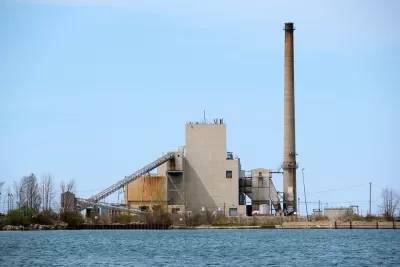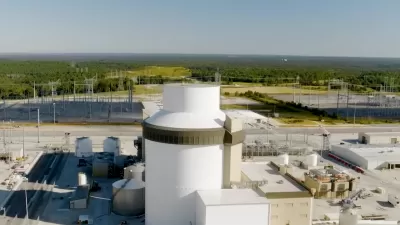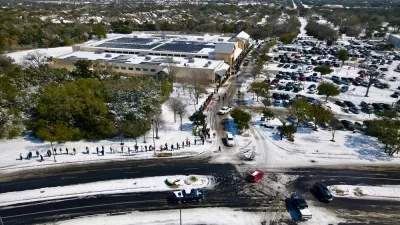Water is an important part of the thermal energy process – one that we may not think as much about.

Akshat Rathi examines the role of water in thermal electricity generation, where it is used to condense cooled steam after the stream turns turbines. "In the US and Europe, more than half of the water drawn from nature is used for power generation. This year’s heatwave has forced some of those power plants to shut down," reports Rathi.
The amount of water used varies widely among types of thermal power plants. For example, the cooling towers of a nuclear power plant use over 1,100 gallons of water to produce a mega-watt hour of electricity while a geothermal power plant uses only 15 gallons. Rathi notes that this water goes back into the environment, but there is still a risk of the water temperature affecting plants and wildlife.
Hydropower, wind, and solar—non-thermal ways to generate energy—do not use water for cooling. However, hydropower uses large amounts of water for energy production. As a result, says Rathi, wind and solar power are the best bets for cutting both fuel and water use.
FULL STORY: You probably have no idea just how much water is needed to produce electricity

Maui's Vacation Rental Debate Turns Ugly
Verbal attacks, misinformation campaigns and fistfights plague a high-stakes debate to convert thousands of vacation rentals into long-term housing.

Planetizen Federal Action Tracker
A weekly monitor of how Trump’s orders and actions are impacting planners and planning in America.

Chicago’s Ghost Rails
Just beneath the surface of the modern city lie the remnants of its expansive early 20th-century streetcar system.

Bend, Oregon Zoning Reforms Prioritize Small-Scale Housing
The city altered its zoning code to allow multi-family housing and eliminated parking mandates citywide.

Amtrak Cutting Jobs, Funding to High-Speed Rail
The agency plans to cut 10 percent of its workforce and has confirmed it will not fund new high-speed rail projects.

LA Denies Basic Services to Unhoused Residents
The city has repeatedly failed to respond to requests for trash pickup at encampment sites, and eliminated a program that provided mobile showers and toilets.
Urban Design for Planners 1: Software Tools
This six-course series explores essential urban design concepts using open source software and equips planners with the tools they need to participate fully in the urban design process.
Planning for Universal Design
Learn the tools for implementing Universal Design in planning regulations.
planning NEXT
Appalachian Highlands Housing Partners
Mpact (founded as Rail~Volution)
City of Camden Redevelopment Agency
City of Astoria
City of Portland
City of Laramie




























